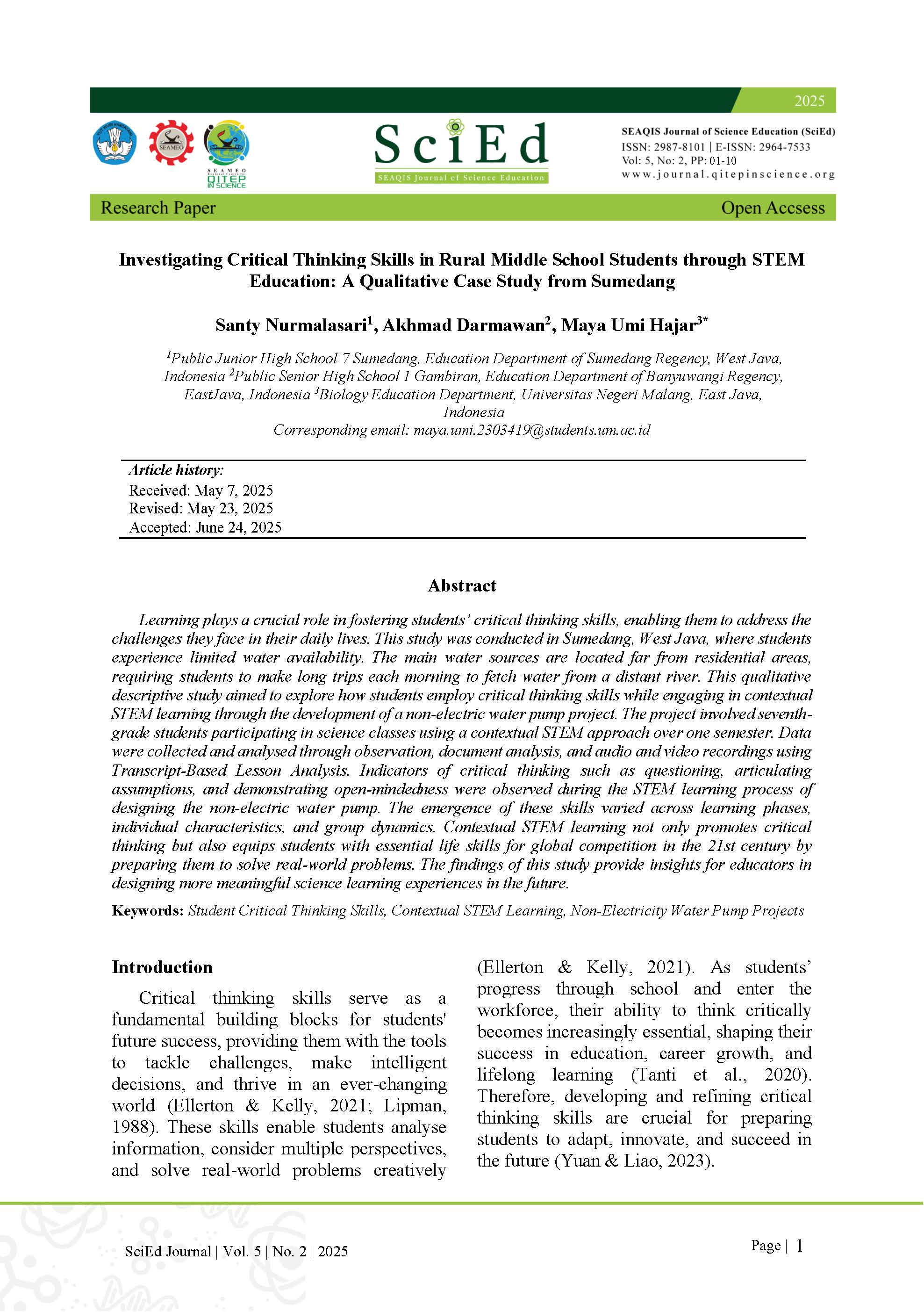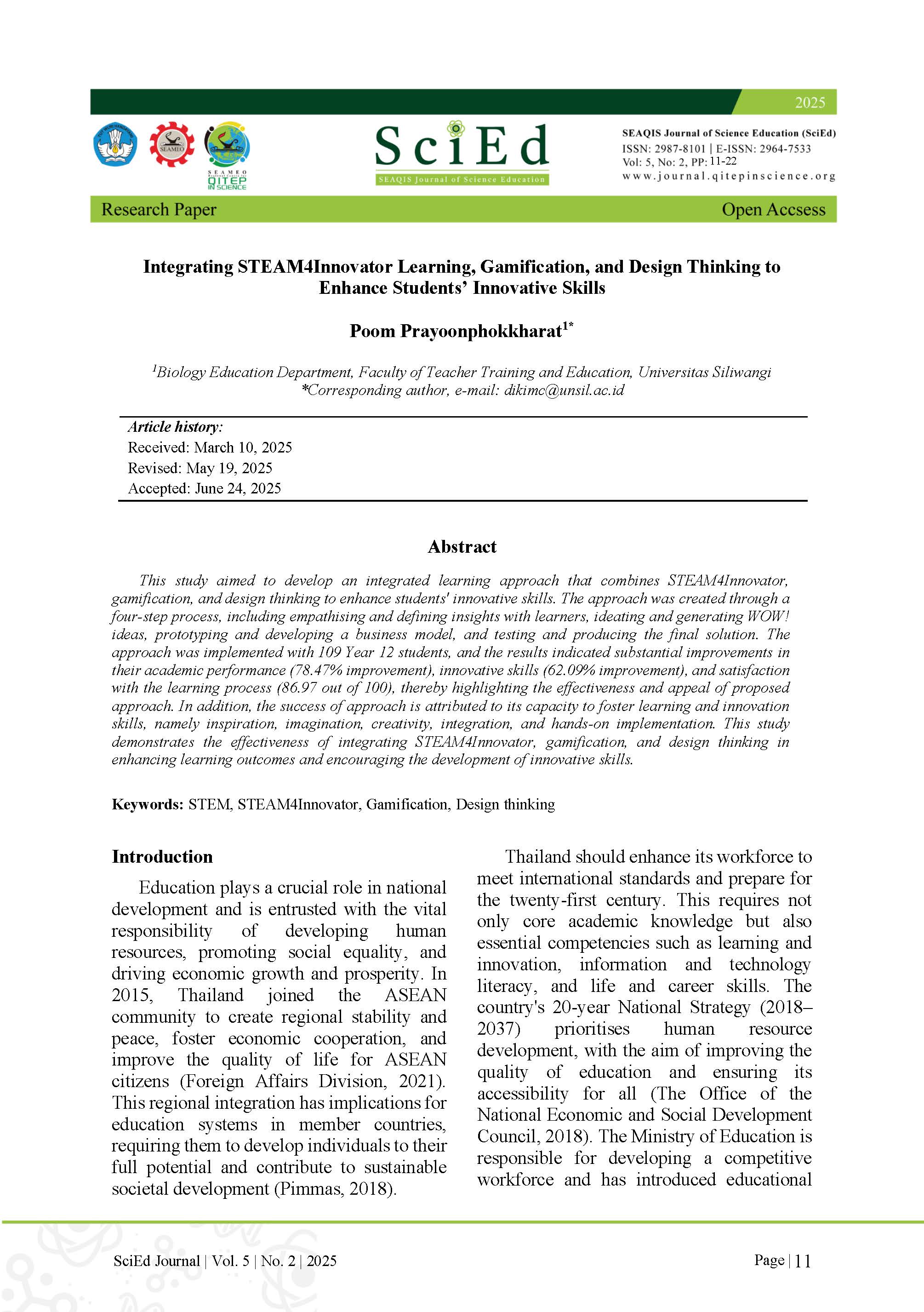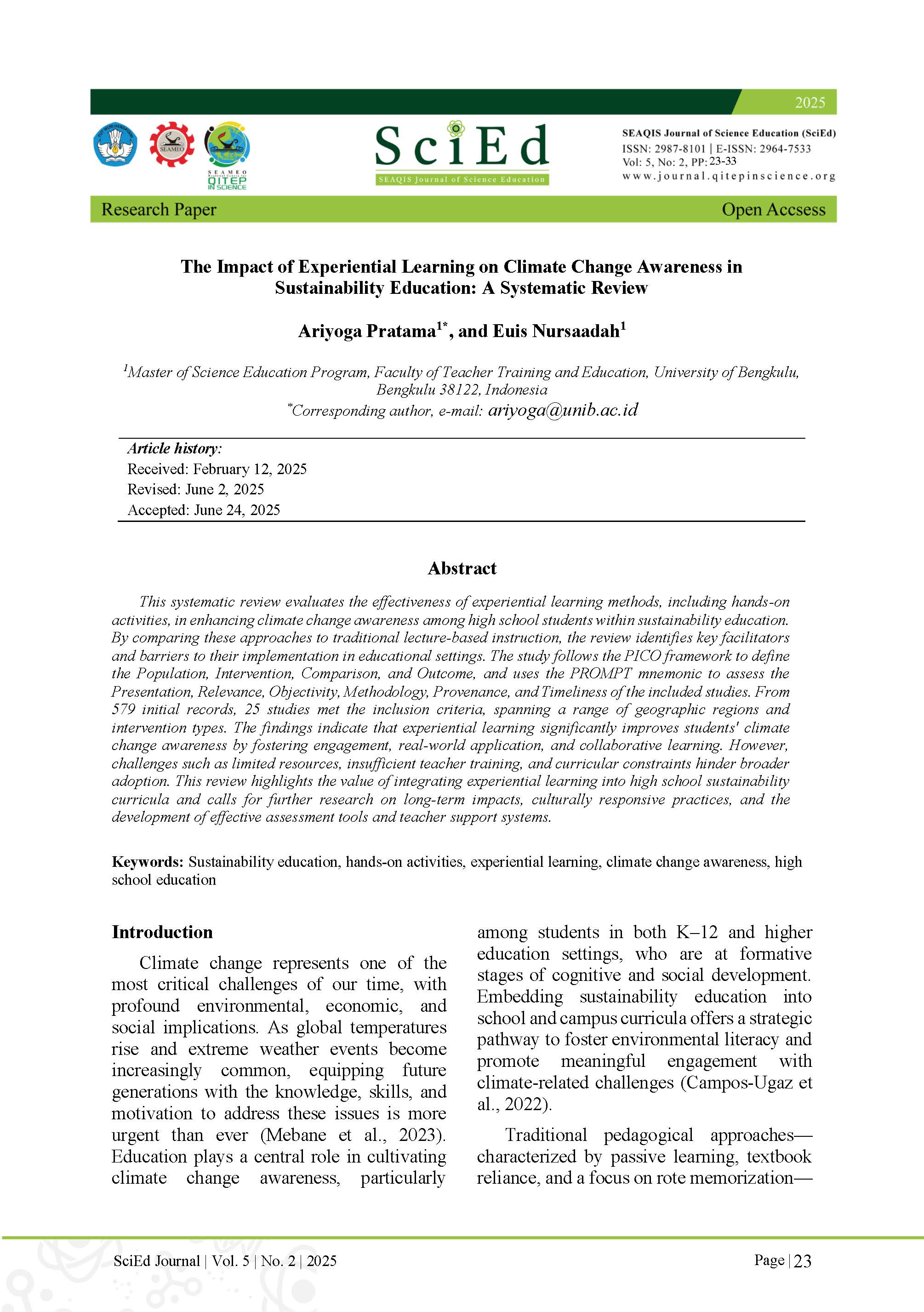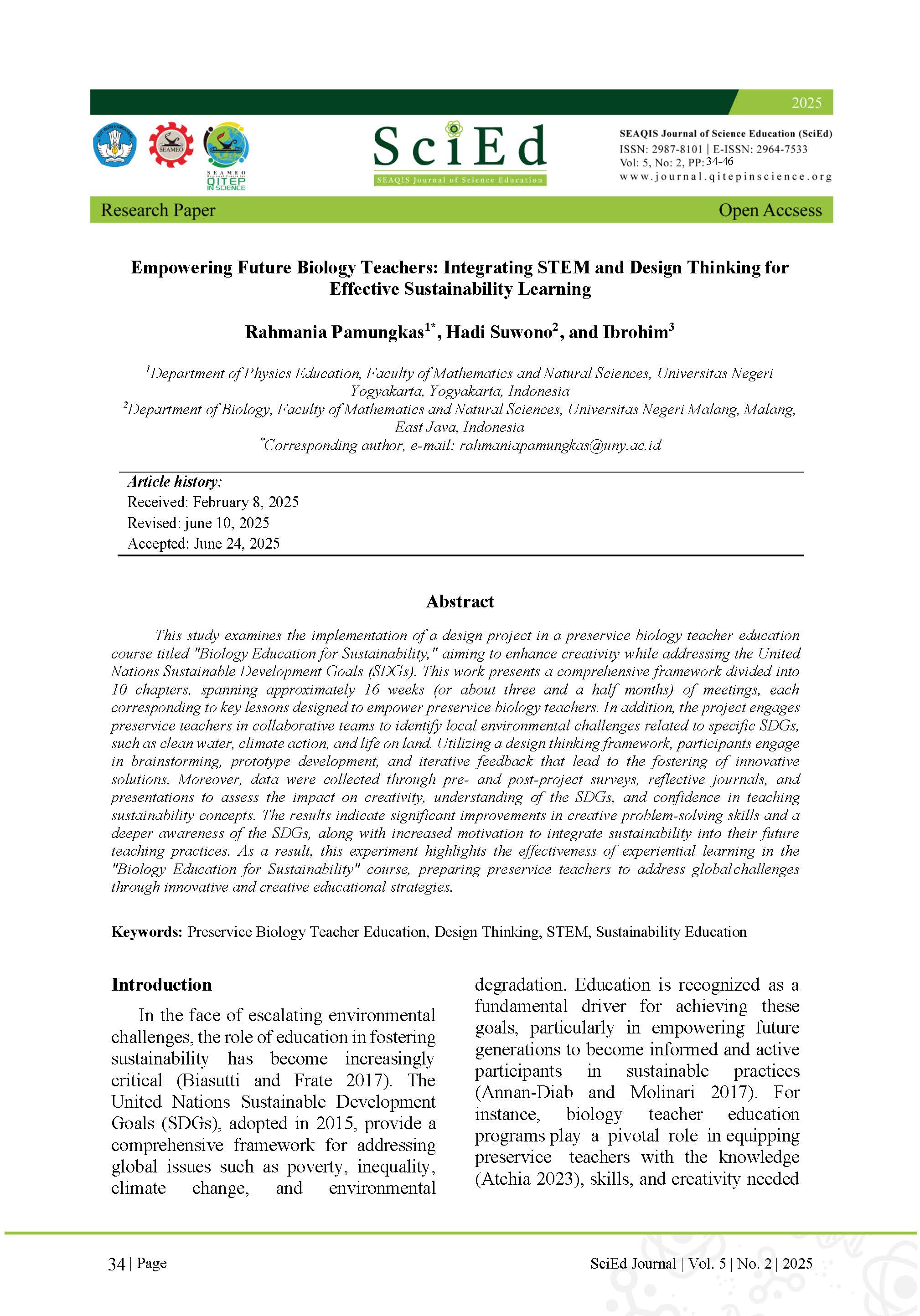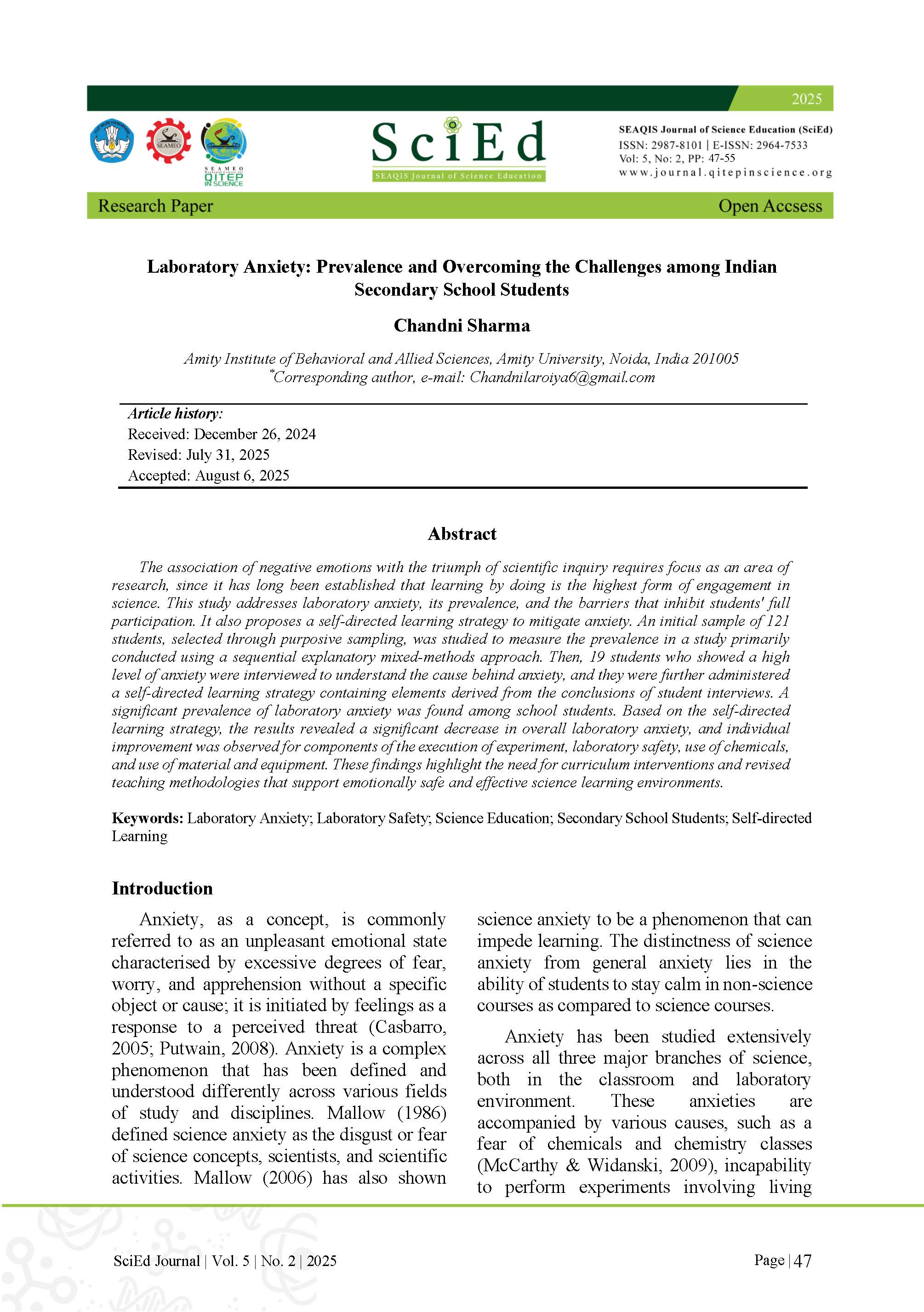
About the Journal
Current Issue

The SEAQIS Journal of Science Education Vol. 5 No. 2 (2025) presents five studies that bridge research and classroom practice across Southeast Asia and beyond. Topics include: a systematic review of experiential learning to strengthen climate-change awareness; an empirical study on laboratory anxiety among Indian secondary students with actionable strategies; a comprehensive RStudio-based analysis of augmented reality to enrich microbiology learning; an integrated approach combining STEAM4Innovator, gamification, and design thinking to build students’ innovation capacity; and a teacher-education model that interweaves STEM and design thinking for effective sustainability learning in biology. Together, these contributions showcase methodological diversity, clear classroom applicability, and a shared commitment to improving learner outcomes and educator professionalism.
Full Issue
Articles

SEAQIS Director's Message
Alhamdulillah, praise to Allah, God Almighty, that SEAQIS with pleasure presents its science journal called SEAQIS Journal of Science Education (SciEd). This journal is devoted to the science education field from theoretical aspects to practical studies.
This journal is the authoritative voice in the science education field, covering the science curriculum, instruction, learning, policy, and science teachers' preparation to advance our knowledge of science education theory and practice. The journal focuses on the teaching and learning of science in a school setting ranging from primary school to secondary education.
This journal also may be a platform for teachers and education personnel to share their ideas and thought about the current issues in the science education world. We know that today science education is fundamental for growing our science literacy and nurturing the next generation of scientists. In this fast-paced world where technological and scientific advancements are made at an ever-increasing rate, scientific literacy is crucial to helping us make sense of the knowledge we receive.
We believe that all the papers published in this journal will significantly influence science education, and we thank all of the authors who contributed to this volume. Have a pleasant reading!
Mr Reza Setiawan

